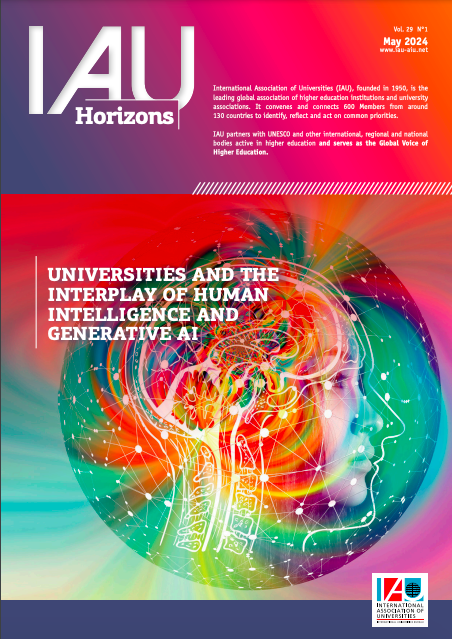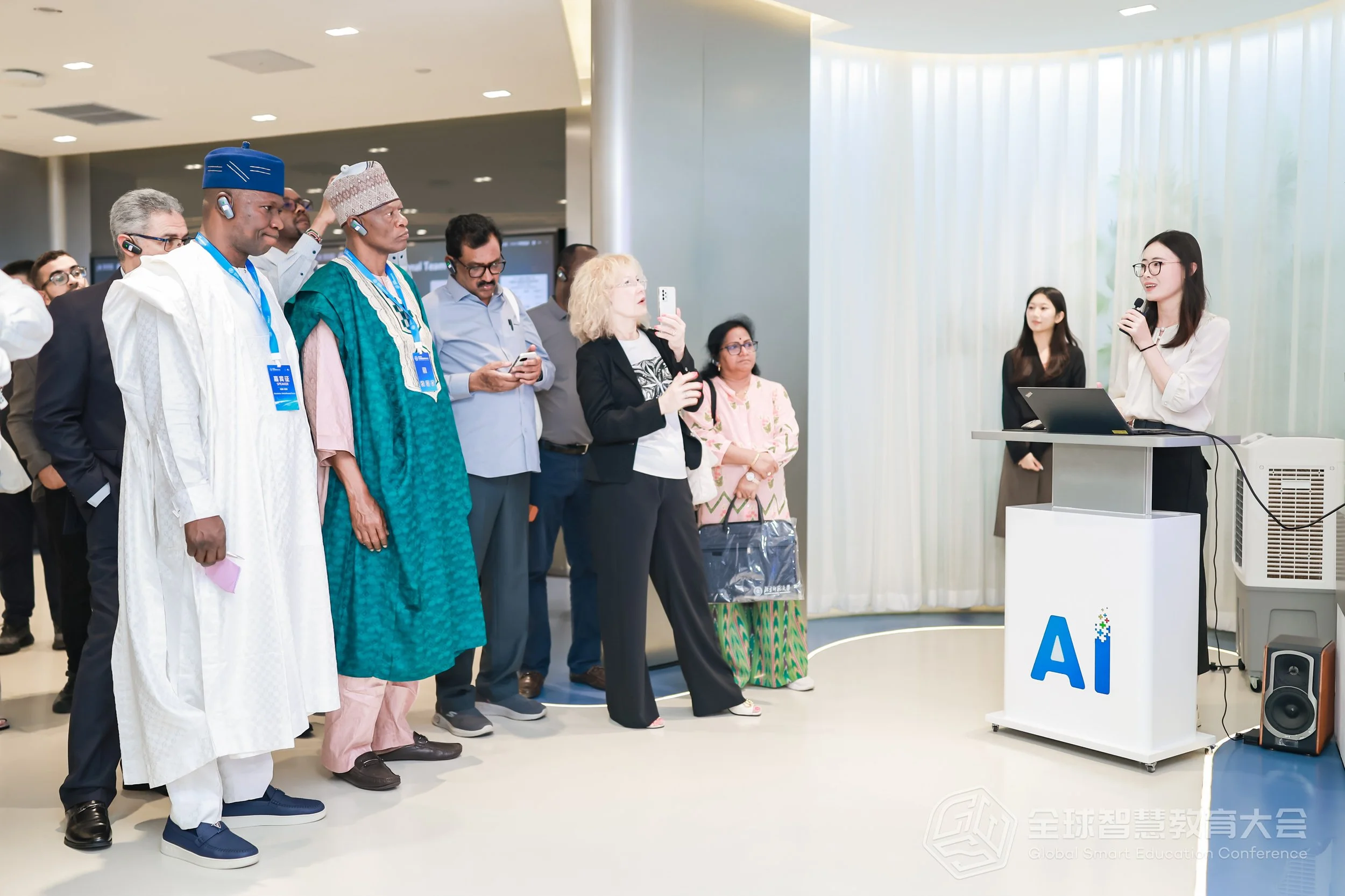Generative
Artificial Intelligence
The rapid rise of Generative AI has sparked profound questions for higher education institutions - ranging from utopian visions to dystopian concerns. To better understand what is at stake, the IAU is fostering global dialogue on the impact of generative AI in higher education through diverse opportunities for exchange and reflection.
While there are no definitive answers to the complex questions emerging from technological progress - especially as it challenges our understanding of what it means to be human in an increasingly digital world - the IAU is committed to convening the collective intelligence of the higher education community. Together, we aim to examine, explore, and shape the use of generative AI in ways that uphold human values and serve the common good.
The Academic Conscience and Artificial Intelligence
The series will consist of six online episodes, with interpretation in English and French. Each episode will feature one keynote speaker presenting for 20 minutes, followed by a moderated conversation with selected discussants, and an open Q&A session with the audience. This format is designed to foster participatory dialogue and multi-perspective exchange across regions and disciplines.
The series will examine both the impacts of AI on higher education and the contribution of universities to the development of AI. Instead of focusing on specific use cases, each episode will take a principled, forward-looking approach to address broader trends and dilemmas, including:
IAU-UNESCO Lecture Series
UNESCO and the International Association of Universities (IAU) are pleased to announce the launch of an online lecture series on Artificial Intelligence and Higher Education. The series will launch on 11 September 2025 and continue over six months.
This initiative builds on the IAU and UNESCO’s commitment to supporting inclusive, ethical, and human-centered digital transformation in education. It follows the adoption of UNESCO’s Recommendation on the Ethics of Artificial Intelligence (2021), and seeks to explore the evolving role of universities in shaping, understanding, and responding to the profound changes brought about by AI in knowledge production, learning, governance, and ethics.
How Does AI Shape Human Cognition and Pedagogy?
Thursday 11th of September 4.30pm – 5.30pm (CEST)
With Duncan H. Pritchard, Professor of Philosophy, University of California
Explore how AI affects the ways we think, learn, and teach, and consider the implications for critical thinking and educational practice.AI and Knowledge: Tensions between the Common Good and Commodification
Wednesday 15th of October 1pm – 2pm (CEST)
With Paul Tiyambe Zeleza, Professor of African Studies at Howard University
Interrogate the role of AI in shaping access to and ownership of knowledge and question the responsibility of higher education in preserving knowledge as a public good.The Geopolitics of AI: What are the Repercussions for Higher Education?
Tuesday 25th of November 1pm – 2 pm (CET)
With Rachel Adams, Founder and CEO of the Global Centre on AI Governance
Reflect on the power dynamics shaping AI development and examine how universities can promote diversity, equity, and international collaboration.AI Ethics and Standards: Balancing Universality and Diversity?
Friday 12th of December 1pm – 2pm (CET)
With Peter-Paul Verbeek, Professor of Philosophy and Ethics of Science and Technology, University of Amsterdam
Discuss the tensions between global AI frameworks and diverse academic and cultural values.The Environmental Imprint of AI
Thursday 19th of February 3pm- 4pm (CET)
Address the ecological footprint of AI and the role of universities in fostering responsible, sustainable innovation.Higher Education as an AI Catalyst: Capacity Building, Research Advancement, and Ethical Stewardship
(Date and speakers to be confirmed shortly)
Consider how universities can shape the future of AI through talent development, interdisciplinary research, and principled leadership.
This lecture series is part of the IAU and UNESCO’s broader efforts to support Member States and universities in navigating the digital transformation of higher education while reinforcing academic freedom, ethics, and inclusive development.
IAU Horizons: Universities and the Interplay of Human Intelligence and Generative AI
The widespread distribution of generative AI has raised many questions for higher education institutions to address, spanning a wide spectrum of visions from utopian ideals to dystopian scenarios. To shed light on what is at stake for higher education, the ‘In Focus’ section of this edition of IAU Horizons is devoted to Universities and the Interplay between Human Intelligence and Generative AI.
IAU Webinar: Who Does the Thinking: The Role of Generative AI in Higher Education
Generative AI has taken the world by storm since OpenAI launched ChatGPT-3 in November 2022. Generative AI is characterized by its capacity to generate human-like content based on deep learning models in response to prompts. There is a wealth of opinions about how this will impact higher education spanning from the need to limit the use in the protection of higher education to embracing the tool as a means to improve higher education.
In this webinar, speakers from different regions shared their views and perspectives and discuss how Generative AI will transform higher education. What are the challenges to be addressed and which opportunities can be pursued to improve the quality of higher education?
Institutional Site Visit on Artificial Intelligence
The 2025 Institutional Site Visit was hosted by Beijing Normal University (BNU) in China from 20-21 August 2025. The University welcomed IAU Members to learn about their extensive experience in leveraging Artificial Intelligence (AI) to transform higher education. While onsite in Beijing, site visit participants engaged in rich exchanges on AI-enabled education, exploring innovative approaches to teaching, research collaboration, talent development, and the integration of emerging technologies across discipline




